Breast Reconstruction in United Kingdom
Search and Compare the Best Clinics and Doctors at the Lowest Prices for Breast Reconstruction in United Kingdom

Find the best clinics for Breast Reconstruction in United Kingdom
No pricing info available
India offers the best prices Worldwide
Price: $ 477
The McIndoe Centre, located in Blackwell, West Sussex, United Kingdom offers patients Breast Reconstruction procedures among its total of 21 available procedures, across 4 different specialties. Currently, there's no pricing information for Breast Reconstruction procedures at The McIndoe Centre, as all prices are available on request only. There are many specialists available at the Hospital, with 49 in total, and they have multiple recognized accreditations, including: ISRS - International Society of Refractive SurgeryGMC - General Medical CouncilGMC - General Medical CouncilCSP - Chartered Society of PhysiotherapyCQC - Care Quality CommissionCSP - Chartered Society of PhysiotherapyRCSEng - Royal College of Surgeons of EnglandCQC - Care Quality CommissionRCO - Royal College of OphthalmologistsGMC - General Medical CouncilBAAPS - British Association of Aesthetic Plastic SurgeonsRCSEng - Royal College of Surgeons of EnglandRCO - Royal College of OphthalmologistsBAPRAS - British Association of Plastic, Reconstructive and Aesthetic SurgeonsBAAPS - British Association of Aesthetic Plastic SurgeonsBAPRAS - British Association of Plastic, Reconstructive and Aesthetic Surgeons
- Home
- United Kingdom
Compare Before & After Photos of _procedure_photos.phpBreast Reconstruction
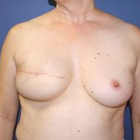
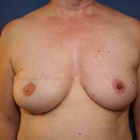
Front view
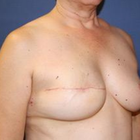
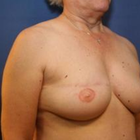
Half-side view
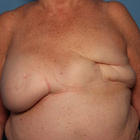

Front view
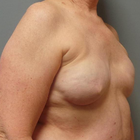
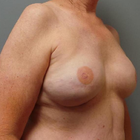
Half-side view
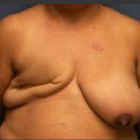
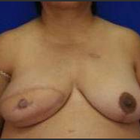
Front view
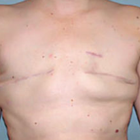

Front view
WHY US?
At Medijump, we're making medical easy. You can search, compare, discuss, and book your medical all in one place. We open the door to the best medical providers worldwide, saving you time and energy along the way, and it's all for FREE, no hidden fees, and no price markups guaranteed. So what are you waiting for?

Free

Best Price

Widest Selection

Risk-Free
What you need to know about Breast Reconstruction in United Kingdom
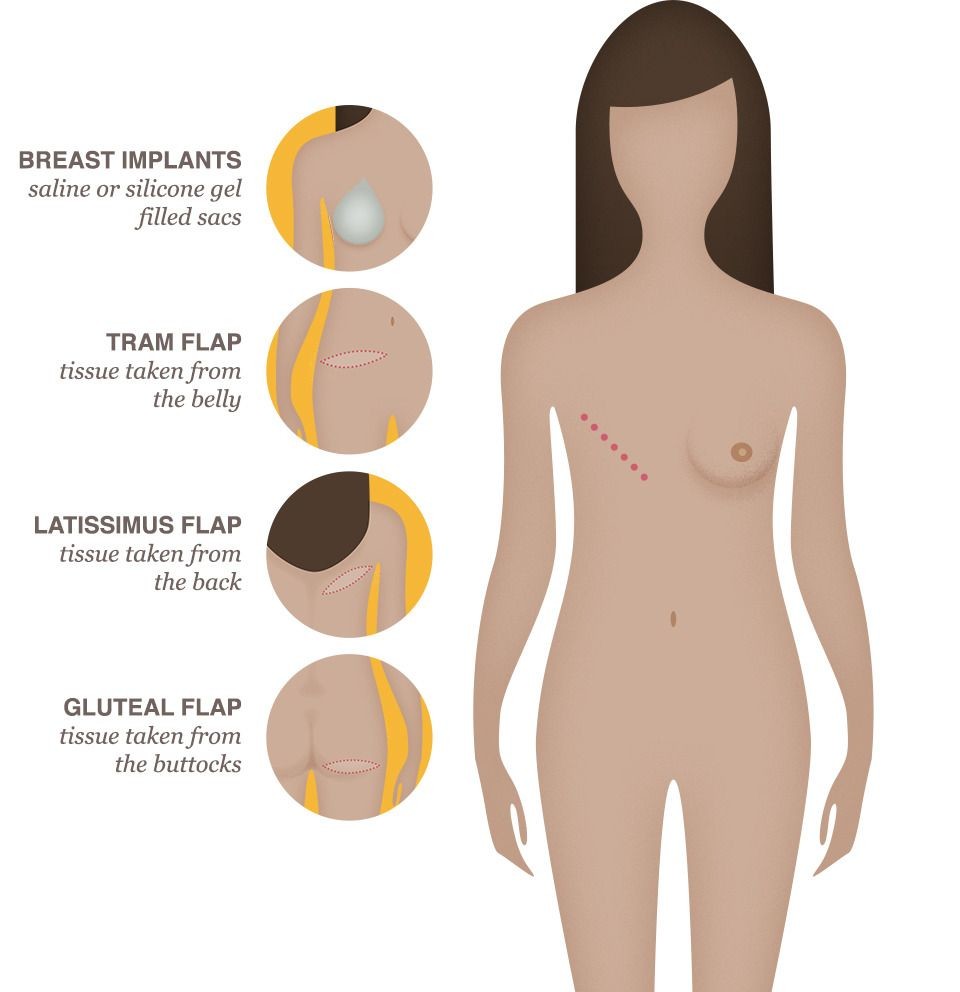
Breast reconstruction is a significant surgery undertaken to rejuvenate the physical form of a woman's chest after losing one or both breasts to cancer or another disease. In United Kingdom, medical centres are well-equipped with top-tier talent in plastic surgery to facilitate this intricate procedure. Every woman's journey is different, and her treatment plan is personalized, considering her unique circumstances and needs.
It's heartening to know that breast cancer treatments like chemotherapy or radiation therapy aren't impeded by reconstruction. Moreover, this surgery doesn't spike the risk of cancer coming back. Undeniably, breast reconstruction is a major surgery with inherent risks, including chances of infection, complications with wound healing, and potential dilemmas related to implants.
What is the cost of Breast Reconstruction in United Kingdom?
Undergoing surgery like Breast Reconstruction brings along a financial commitment. The expense varies extensively, depending on many factors like the complexity of the procedure, the medical professional performing the surgery, the hospital's facility, and the region, amongst others. Generally, the cost might range between $15,000 to $50,000, including multiple surgeries or intricate techniques within this estimate.
Thankfully, in many cases, insurance plans cover such surgical procedures, especially given mandates like the Women's Health and Cancer Rights Act of 1998 in the U.S. Still, out-of-pocket expenses associated with co-payment or deductibles can add up. It's recommended to navigate these aspects with your insurance provider and your chosen healthcare facility in United Kingdom.
What does a Breast Reconstruction Procedure Involve?
Breast reconstruction generally happens in stages, starting with the most complex first, which may either occur at the same time as the mastectomy or later, based on the individual’s specific health conditions or treatment plan.
Two main techniques are employed in breast reconstruction. One is the use of an implant, saline, or silicone to recreate the breast shape. Two, autologous or flap reconstruction where tissue from the patient’s body like the abdomen or thigh is relocated to recreate the breast shape. The method selected is dependent on individual factors like the patient’s health, personal choice, cancer type, and stage.
After the primary surgery and post an adequate healing period, the surgeon performs a second procedure to recreate the nipple and areola. Later, to give it a natural look, the nipple-areola complex is tattooed. Remember that although it is a common procedure, complications might arise involving reaction to anaesthesia, bleeding, infection, poor healing or the need for further interventions.
How Long Should I Stay in United Kingdom for a Breast Reconstruction Procedure?
Post-breast reconstruction surgery, patients typically stay in the hospital for two to five days. However, if the reconstruction was done immediately after the mastectomy, the stay could extend from three to six days.
Overall, a patient should expect to remain in United Kingdom for approximately two weeks post-surgery. This allows enough time for necessary follow-ups and to address any complications, if they arise. As with any major surgical procedure, do not hasten the healing process.
What's the Recovery Time for Breast Reconstruction Procedures in United Kingdom?
The recovery timeframe for breast reconstruction procedures in United Kingdom varies from patient to patient. Generally, for implant-based procedures, patients may take about four to six weeks to recuperate before they return to normal routines. For more complex autologous techniques, particularly those using abdominal tissue, patients might require six to eight weeks for recovery.
Recovering patients need to temper their activities during this period. Avoid lifting heavy objects and defer strenuous exercise until your physician gives a clear signal. Medical assistance should be promptly sought if any discomforting symptoms like chronic pain, redness or swelling surface.
What's the Success Rate of Breast Reconstruction Procedures in United Kingdom?
Medical success cannot just be measured in terms of complication-free postoperative progress or longevity of implants used in breast reconstruction. Patient satisfaction with their surgery, their psychological well-being following the operation, their perception of body image, and their quality of life post-surgery are equally important factors to consider. Studies indicate that between 85% to 90% of women who have undergone breast reconstruction are satisfied with the long-term results.
In United Kingdom, dedicated hospitals and healthcare facilities strive to offer high-quality treatment, ensuring the best possible surgical outcomes using progressive technology and experienced professionals. Still, everyone's response to surgery varies, and outcomes depend on factors such as overall health, age, body type, and compliance with surgical advice.
Are there Alternatives to Breast Reconstruction Procedures in United Kingdom?
Indeed, there are alternatives to breast reconstruction in United Kingdom. The journey of every woman is unique and how she chooses to deal with the loss of a breast, or both, is a highly personal decision. Alternatives include:
- Breast Prostheses or Forms: They are silicone forms that imitate the appearance and feel of natural breast tissue. They come in diverse sizes, shapes and colours to closely match the woman's skin tone.
- Flat Closure: In this method, the surgeons sew up the chest wound smoothly, without constructing a breast mound. This option appeals to women who choose not to have more surgeries or body implants.
- Opting not to undergo reconstruction at all, also termed as "going flat: This method exhibits the woman's choice to live comfortably with her new body shape without artificial substitutes or further surgeries. It is a fully personal decision deserving respect and support.
Each of these options has pros and cons, and the choice depends on the woman’s personal preference, health status, lifestyle, and perception of her body. Regardless of the choice, it’s important to regularly monitor breast health and engage in practices that promote overall wellness.
What Should You Expect Before and After the Breast Reconstruction Procedure?
Before the surgery, comprehensive discussions with the surgeon will take place to understand treatment objectives, outcomes, and possible complications. Preoperative tests, lifestyle modifications, and nutritional advice may form a part of the preparatory process.
Postoperative care is equally important: discomfort, swelling, and bruising are normal and subside over time. Pain management strategies will be provided to help you manage discomfort effectively. Your surgeon will provide personalised guidance on caring for your surgical site, usage of medications, and physical activities.
What sort of Aftercare is Required for Breast Reconstruction Procedures in United Kingdom?
The following points should be considered post-operation:
- Follow the instructions given by your doctor and take your medicines as and when prescribed.
- Consult a nutritionist for a diet plan. A healthy diet helps you recover faster.
- Do not wear a padded or underwire bra until allowed by your doctor.
- Use surgical bras in the early few days after the surgery.
- Avoid excessive unnecessary movement of your breasts.
- Do not lift heavy objects and children - it could stretch on your stitches.
- Change your bandage whenever it gets dirty. Germs can cause infection.
- Do not take a bath when the bandages are still intact. A wet bandage can also be the cause of infection.
- Abstain from sexual activity for at least 6 weeks.
- Take rest - give yourself time to recover.
How Do I Prevent Cancer from Recurring?
Preventing cancer recurrence largely revolves around a balanced, healthy lifestyle coupled with regular medical check-ups. Regular exercise, maintaining a healthy weight, and eating nutritiously can contribute to cancer prevention. Smoke cessation and limiting exposure to secondhand smoke are crucial for both prevention and postoperative recovery.
Regular breast self-examinations, as well as mammograms and follow-up visits, are critical for early detection of any recurrence. Stress management techniques like yoga, meditation, and spending time in nature can also play an essential role in overall health.
Your medical team in United Kingdom is there to support you, offering advice tailored to your individual health status and medical history. Remember, proactive health checks are key to maintaining overall health and preventing the recurrence of diseases like cancer.
What is the ideal time to have Breast Reconstruction surgery after a Mastectomy in United Kingdom?
The decision regarding when to have Breast Reconstruction following a Mastectomy in United Kingdom is largely based on the individual's health status, treatment plan, personal preferences, and discussions with the oncology team. Breast reconstruction can be done at the time of mastectomy (immediate reconstruction) or at a later date (delayed reconstruction). Immediate reconstruction might offer psychological benefits and less overall surgery since both procedures are done together. Yet, if additional treatments such as radiation therapy are required post-mastectomy, opting for delayed reconstruction could be advisable to avoid risks posed by radiation to the new construct.
Remember that deciding on the timing of breast reconstruction is a personal choice and should be made in consultation with your healthcare providers. They can provide specific guidance based on your health condition and treatment plan.
How Will Breast Reconstruction in United Kingdom Impact My Routine Mammograms and Breast Cancer Detection?
Breast reconstruction surgery may impact the way routine breast cancer screenings are conducted. After a mastectomy with or without reconstruction, women usually don't need routine screening mammograms on the treated side since all breast tissue has been removed. However, they would need routine mammograms for the untreated breasts.
If you've had reconstruction using your own body tissue, your surgeon or oncologist will guide you on whether or not you'll require mammograms on the reconstructed breast. Remember, mammograms can still be performed on reconstructed breasts, and self-breast exams should be a regular part of your health routine.
Whilst the information presented here has been accurately sourced and verified by a medical professional for its accuracy, it is still advised to consult with your doctor before pursuing a medical treatment at one of the listed medical providers
No Time?
Tell us what you're looking for and we'll reachout to the top clinics all at once
Enquire Now

Popular Procedures in United Kingdom
Prices Start From $497

Prices Start From $208

Prices Start From $834

Prices Start From $500

Prices Start From $93

Prices Start From $85

Recommended Medical Centers in United Kingdom for Breast Reconstruction

- Interpreter services
- Translation service
- Religious facilities
- Medical records transfer
- Medical travel insurance
- Health insurance coordination
- TV in the room
- Safe in the room
- Phone in the room
- Private rooms for patients available

- Interpreter services
- Translation service
- Religious facilities
- Medical records transfer
- Medical travel insurance
- Health insurance coordination
- TV in the room
- Safe in the room
- Phone in the room
- Private rooms for patients available

- Interpreter services
- Translation service
- Religious facilities
- Medical records transfer
- Medical travel insurance
- Health insurance coordination
- TV in the room
- Safe in the room
- Phone in the room
- Private rooms for patients available

- Interpreter services
- Translation service
- Religious facilities
- Medical records transfer
- Medical travel insurance
- Health insurance coordination
- TV in the room
- Safe in the room
- Phone in the room
- Private rooms for patients available

- Interpreter services
- Translation service
- Religious facilities
- Medical records transfer
- Medical travel insurance
- Health insurance coordination
- TV in the room
- Safe in the room
- Phone in the room
- Private rooms for patients available

- Interpreter services
- Translation service
- Religious facilities
- Medical records transfer
- Medical travel insurance
- Health insurance coordination
- TV in the room
- Safe in the room
- Phone in the room
- Private rooms for patients available

- Interpreter services
- Translation service
- Religious facilities
- Medical records transfer
- Medical travel insurance
- Health insurance coordination
- TV in the room
- Safe in the room
- Phone in the room
- Private rooms for patients available

- Interpreter services
- Translation service
- Religious facilities
- Medical records transfer
- Medical travel insurance
- Health insurance coordination
- TV in the room
- Safe in the room
- Phone in the room
- Private rooms for patients available

- Interpreter services
- Translation service
- Religious facilities
- Medical records transfer
- Medical travel insurance
- Health insurance coordination
- TV in the room
- Safe in the room
- Phone in the room
- Private rooms for patients available

- Interpreter services
- Translation service
- Religious facilities
- Medical records transfer
- Medical travel insurance
- Health insurance coordination
- TV in the room
- Safe in the room
- Phone in the room
- Private rooms for patients available
Breast Reconstruction in and around United Kingdom
About the United Kingdom
The United Kingdom is a constitutional monarchy comprising much of the British Isles. This Union is more than 300 years old and comprises four constituent countries: England, Scotland, Wales, and Northern Ireland. It occupies all of the island of Great Britain, the north-eastern portion of the island of Ireland, and most of the remaining British Isles. The UK is an island nation but shares an open land border with Ireland. The UK has a population of 65 million people, the capital and largest city is London.
The United Kingdom welcomes an ever-increasing number of medical tourists each year, many of which travel for Breast Reconstruction procedures. The government provides all British citizens free or low-cost care under the NHS, also known as the National Health System, leaving a small private sector for routine operations, which caters to people that do not want to wait in line for elective procedures or are not citizens or residents of the Islands.
Popular Parts of United Kingdom
Made up of Great Britain and Northern Ireland, the United Kingdom is filled with vibrant cities and tranquil countryside.
- England is home to London, United Kingdom’s largest city and capital which also serves as its financial center. Today, the country continues to be one of the most popular tourist destinations in the world. Although most tourists stay in London, the country actually has a plethora of attractions spread all over its cities. Tourists can check out Buckingham Palace, visit the Tower of London, explore Stonehenge, relax on the beach in Brighton, hike Hadrian’s Wall, or go museum hopping.
- Scotland is popular for its welcoming locals, beautiful parks, ancient architecture, spectacular lochs and mountains, and delightful whiskey. Its vast wilderness area is a great place to have some fantastic outdoor adventures. The country is rich in history and culture, which is evident in its hundreds of castles and historical sites. It also has glorious cities, such as Edinburgh, a city filled with parks, museums, cobblestone streets, and pubs.
- Wales might be tiny, but this green country offers countless opportunities for its inhabitants and visitors to escape into nature. The country is mainly mountainous, making it a hiker’s paradise. Its higher peaks lie in the north and central areas, including the famous Snowdon. Not only widely-known for its lush greenery, but the country is also a wonderful beach destination. In the summer, families will fill up the beaches to soak up the sun and kids will be running around in the sand. Wales’s beautiful landscape is complemented by stunning castles which should not be missed by any visitors.
- Northern Ireland is often overlooked by tourists, but once they arrive, they will be surprised by its serene scenery, friendly people, and scrumptious food scene. Giant’s Causeway, the country’s only UNESCO World Heritage site, has been attracting visitors from all around the world. It is a remarkable hexagonal-stone formation with an interesting magical tales behind it. Another popular attraction is the Titanic Belfast, a museum that provides nine galleries where visitors can discover the Titanic story. Visitors will be able to learn about the ship’s construction and get new insights into its disastrous demise.
Weather and Climate in the United Kingdom
The United Kingdom enjoys a temperate climate and has plenty of rain all year round. Tourists can visit any time of year as it does not experience extreme weather. There is a great variety of changeable weather, but the overall weather and seasons are generally the same throughout this sovereign country.
- The Spring months are from late March to early June and this season is known to be one of the best times to visit the United Kingdom because the weather is warming up and beautiful spring flowers are blooming and the temperatures range from 9 °C to 12 °C.
- Summer is from June to August and is the hottest season of the year but the temperatures rarely rise above 35 °C. Although rainfall will decrease during this season, prepare to find some rainy days. During this season, some cities like London experiences approximately 15 hours of sunshine.
- September to November is Autumn, and it has a variety of weather. The early months of September and October are still quite warm, but the temperatures will decrease in November. Typically, November is also the wettest month of the year.
- With an average temperature of 4 °C, Winter is the coldest season in the United Kingdom. The season can be wet and windy with frost and occasional snow. Winter also experiences minimal daylight. Despite the gloomy weather, it is an enjoyable time to visit the large cities because the tourist attractions are usually quieter and the cities can be very festive.
Getting Around in the United Kingdom
There are plenty of airports in the United Kingdom, but the busiest and the largest airport is the London Heathrow Airport. It is the second busiest airport in the world after Dubai Airport. The airport has international connections with almost every country around the globe, including countries in the Middle East, Asia, Africa, and North America. It also serves domestic flights which provide an easy way to travel around the United Kingdom. There are budget airlines that offer a more affordable option for those who want to get around by plane.
The United Kingdom is very well connected by plane, train, and bus. The train is the most popular mode of transport and one of the most comfortable. Tickets can be booked online and it can be expensive, but most trains are equipped with air conditioning and sometimes Wi-Fi. There are two classes of train, the Standard Class and the First Class. Big cities and towns are usually connected by a regular bus service. The cost can be cheap, but the further you travel away from a city, the more expensive the cost. It is best to invest in an Oyster Card if you wish to travel by bus.
Taxis are available in most cities. There are two types of taxis; the metered taxis (painted in black) and private hire taxis (known as minicabs). The taxis should have a taxi-license displayed on the dashboard. The metered taxis can be hailed directly from the streets, while the minicabs have to be ordered via telephone. The minicabs are usually more affordable than the metered taxis because they operate on fixed prices and sometimes are even open to negotiation.
Tourist Visas in the United Kingdom
Citizens of the European Union can enter the United Kingdom without a visa. Additionally, British Nationals who are not European Union citizens and nationals of 56 countries can enter and stay for up to 180 days (90 days if they enter from the Republic of Ireland). Citizens of Kuwait, Oman, Qatar, and the UAE can obtain an online electronic visa waiver (EVW). Other nationals not listed in the visa-exempt for stays in the UK (including China and Russia) need to apply and obtain a visa before entering the country.
Additional Information
- Local Currency: Pound sterling is the official currency (£). US$ 1 will get you £0.8.
- Money & Payments: International ATMs that allow foreigners to withdraw cash directly from their home account can be found easily across the United Kingdom. Credit cards are accepted in restaurants, shops, and hotels (mostly Visa and MasterCard). Tipping varies between countries, but generally optional.
- Local Language: English is the official language and spoken by approximately 98% of the population. A number of regional languages are also spoken (Welsh, Irish, Scottish Gaelic, and Cornish). There are also people who will speak some foreign languages, mainly French, German, and Spanish.
- Local Culture and Religion: Christianity is the most popular religion. However, more than 25% of the population follows no religion. Other religions such as Islam, Hinduism, Sikhism, Judaism, and Buddhism are in the minority.
- Public Holidays: There is a variation of public holidays in the United Kingdom. Typically, the countries celebrate New Year’s Day and Christmas Day.
Popular Searches
- Plastic Surgery in Thailand
- Dental Implants in Thailand
- Hair Transplant in Thailand
- Breast Augmentation Thailand
- Gastric Sleeve in Thailand
- Gender Reassignment Surgery in Thailand
- Laser Hair Removal in Bangkok
- Botox in Bangkok
- Dermatology in Bangkok
- Breast Augmentation in Bangkok
- Coolsculpting in Bangkok
- Veneers in Turkey
- Hair Transplant in Turkey
- Rhinoplasty in Turkey
- Stem Cell Therapy in Mexico
- Rhinoplasty in Mexico
- Liposuction in Mexico
- Coolsculpting in Tijuana
- Rhinoplasty in Korea
- Scar Removal in Korea
- Gastric Sleeve in Turkey
- Bone Marrow Transplant in India
- Invisalign in Malaysia
- Plastic Surgery in the Dominican Republic
- Tummy Tuck in the Dominican Republic
- Plastic and Cosmetic Surgery in Poland
- Rhinoplasty in Poland
- Hair Implant in Poland
- Dental Implants in Poland
- IVF in Turkey
